Keeping Older Adults Well & Hydrated This Summer
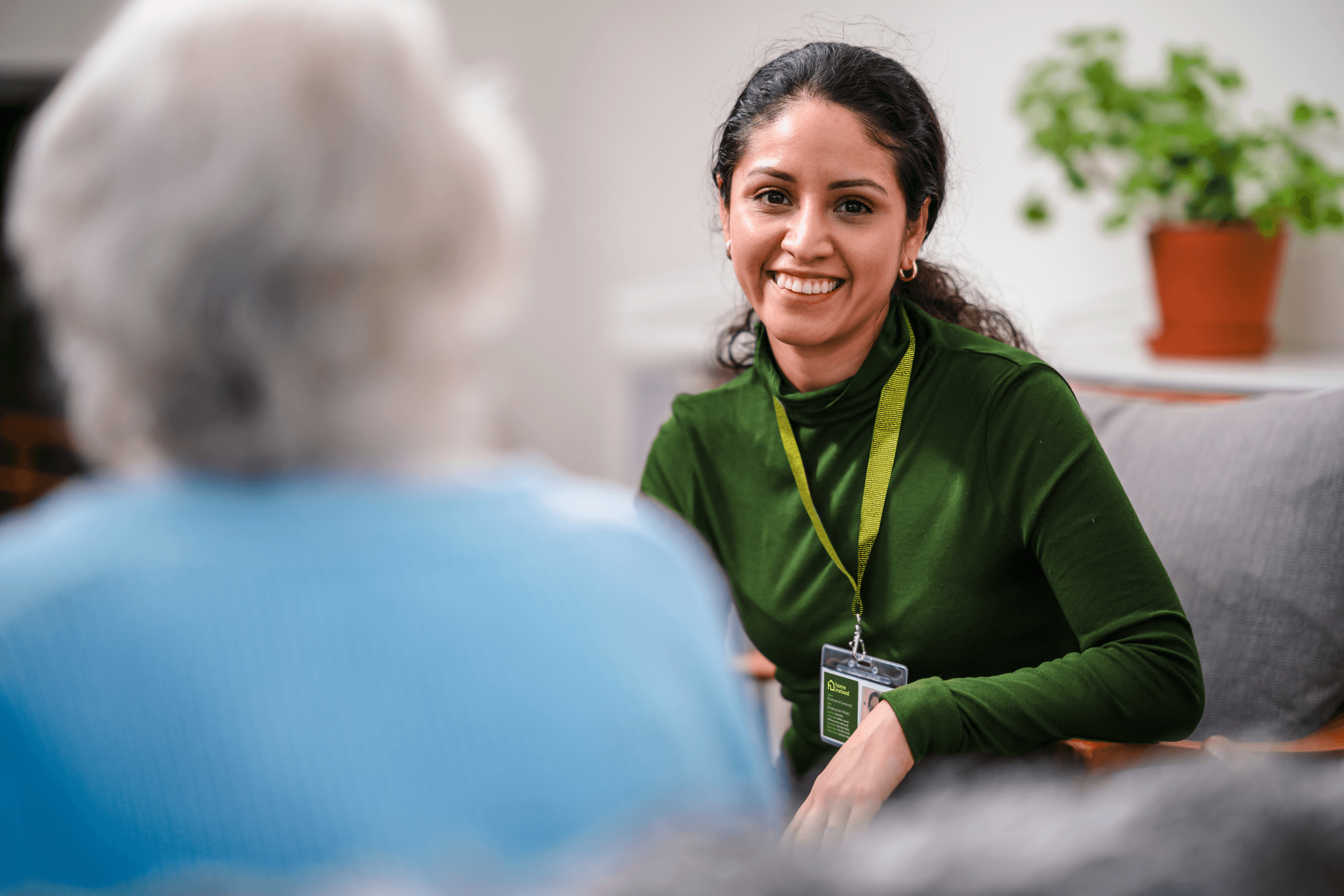
Simple ways to support hydration and wellbeing at home across Taunton and West Somerset.
In July, when the sun shines brighter and temperatures climb, staying hydrated becomes even more important, especially for older adults who may not feel thirsty or struggle with drinking regularly. For those living at home in Taunton and West Somerset, particularly individuals managing conditions such as dementia, Parkinson’s, or limited mobility, maintaining hydration can be a quiet challenge. At Home Instead Taunton & West Somerset, we know that good hydration isn’t just about water, it’s about making drinking easier, more enjoyable, and part of daily life. In this blog, we explore the best ways to stay hydrated, foods and drinks to avoid, and the types of support that can make all the difference during the summer months.
The blog below covers why hydration becomes more complex as we age, signs to watch for, and practical tips to help older loved ones stay safe and well. You’ll also learn how our trained care professionals incorporate hydration support into everyday routines across Taunton and West Somerset.
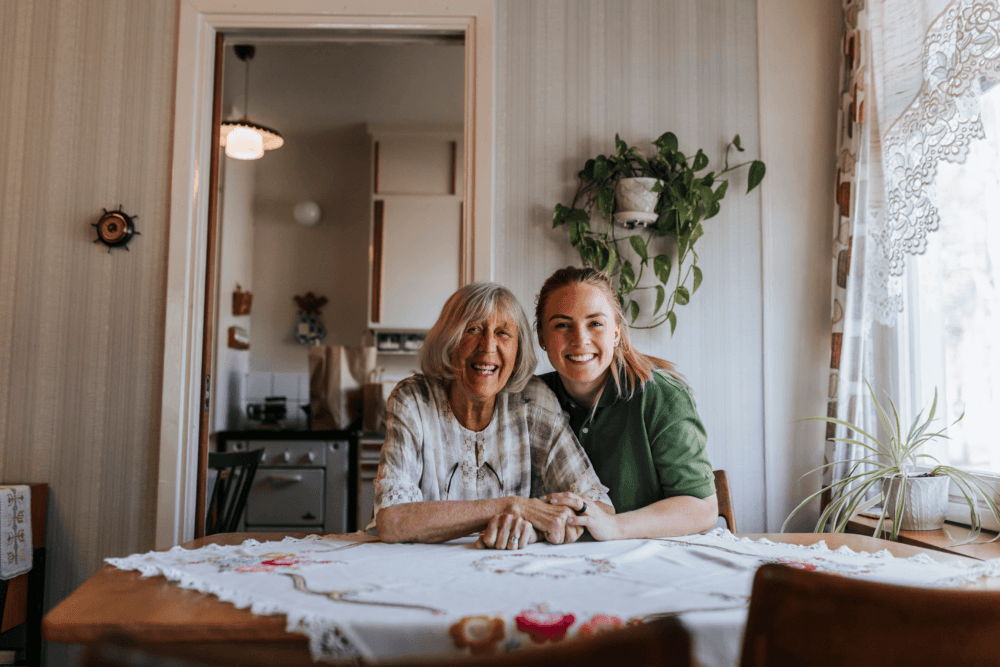
Why Hydration Is Harder in Later Life
Age changes how the body manages water. From our twenties to our eighties, we lose around 15% of our body’s water content, roughly six litres. Combine that with a reduced sense of thirst, changes in kidney function, and medications that promote fluid loss, and it’s easy to see why older people are more at risk of dehydration.
Many elderly individuals also face additional hurdles:
- Weaker thirst cues: They may not feel thirsty, even when their body needs fluid.
- Mobility limitations: Getting up to fetch a drink, or visit the loo, can feel daunting.
- Side effects from medication: Diuretics, antidepressants, antihistamines and laxatives all increase water loss.
- Cognitive changes: Dementia and memory loss can affect a person’s ability to recognise thirst or remember to drink.
Without regular intake of fluids, even mild dehydration can cause symptoms like confusion, headaches, low energy, or urinary infections. In more serious cases, it can lead to fainting, seizures, and even kidney failure.

Common Signs of Dehydration in Older Adults
Spotting dehydration early can be tricky, it often masks itself as other common conditions. Keep an eye out for:
Milder symptoms:
- Dry mouth, lips, or tongue
- Strong-smelling or dark yellow urine
- Dizziness or light-headedness
- Muscle cramps
- Headaches
- Constipation
- Tiredness or mood changes
Urgent warning signs:
- Rapid but weak pulse
- Low blood pressure
- Inability to sweat
- Delirium or sudden confusion
- Bloated stomach
- Fainting
- Seizures
If these symptoms appear and don’t improve quickly with fluids, seek medical support.
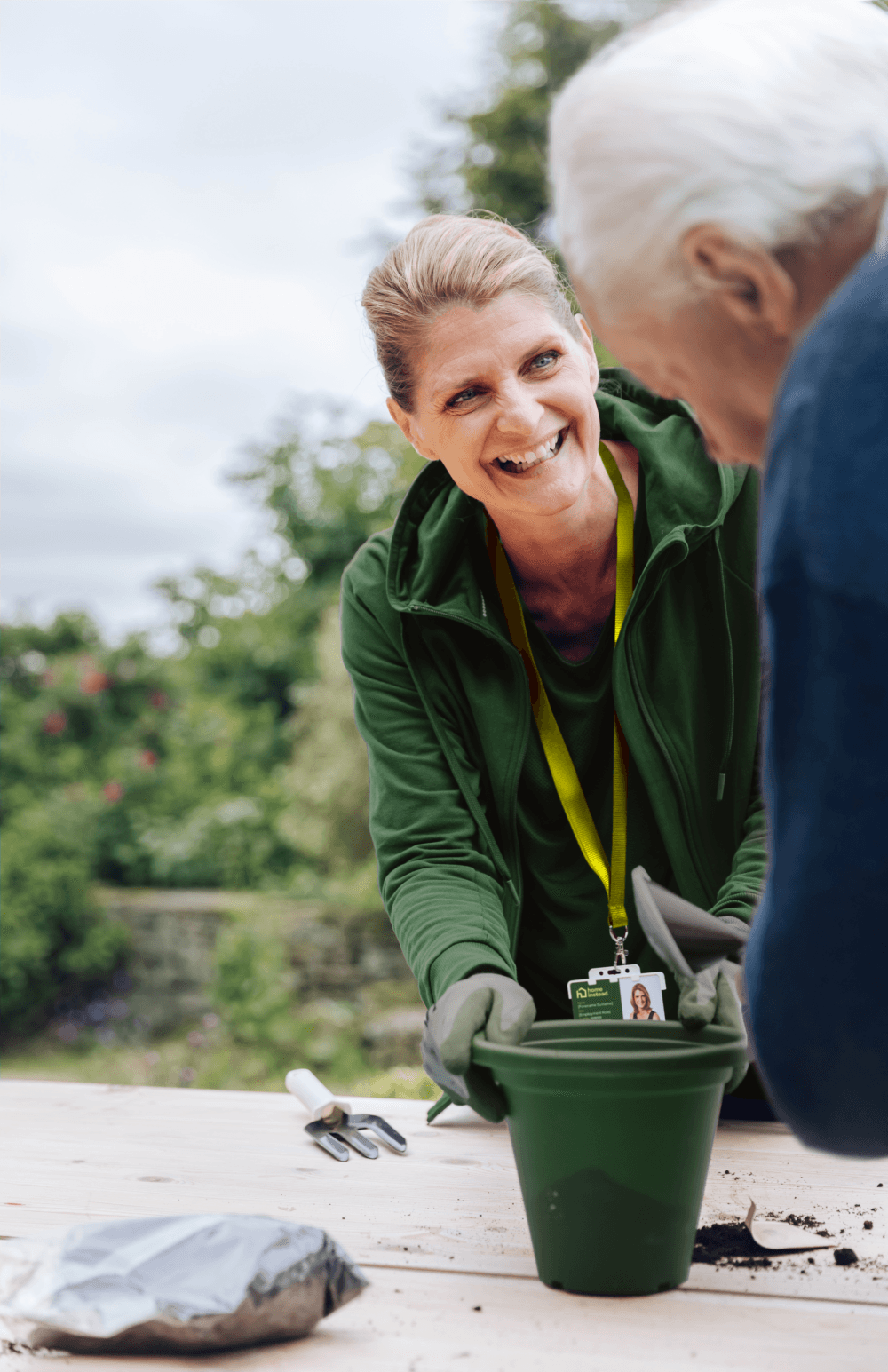
How Much Should Older Adults Be Drinking?
- Women: Around 2.2 litres of fluid per day
- Men: Around 3 litres of fluid per day
But this varies depending on someone’s weight, medications, activity level, and medical history. As a rough guide, divide a person’s weight in pounds by three, the result in ounces is a good ballpark for daily intake. Always check with a GP if unsure, especially if certain medications are involved.
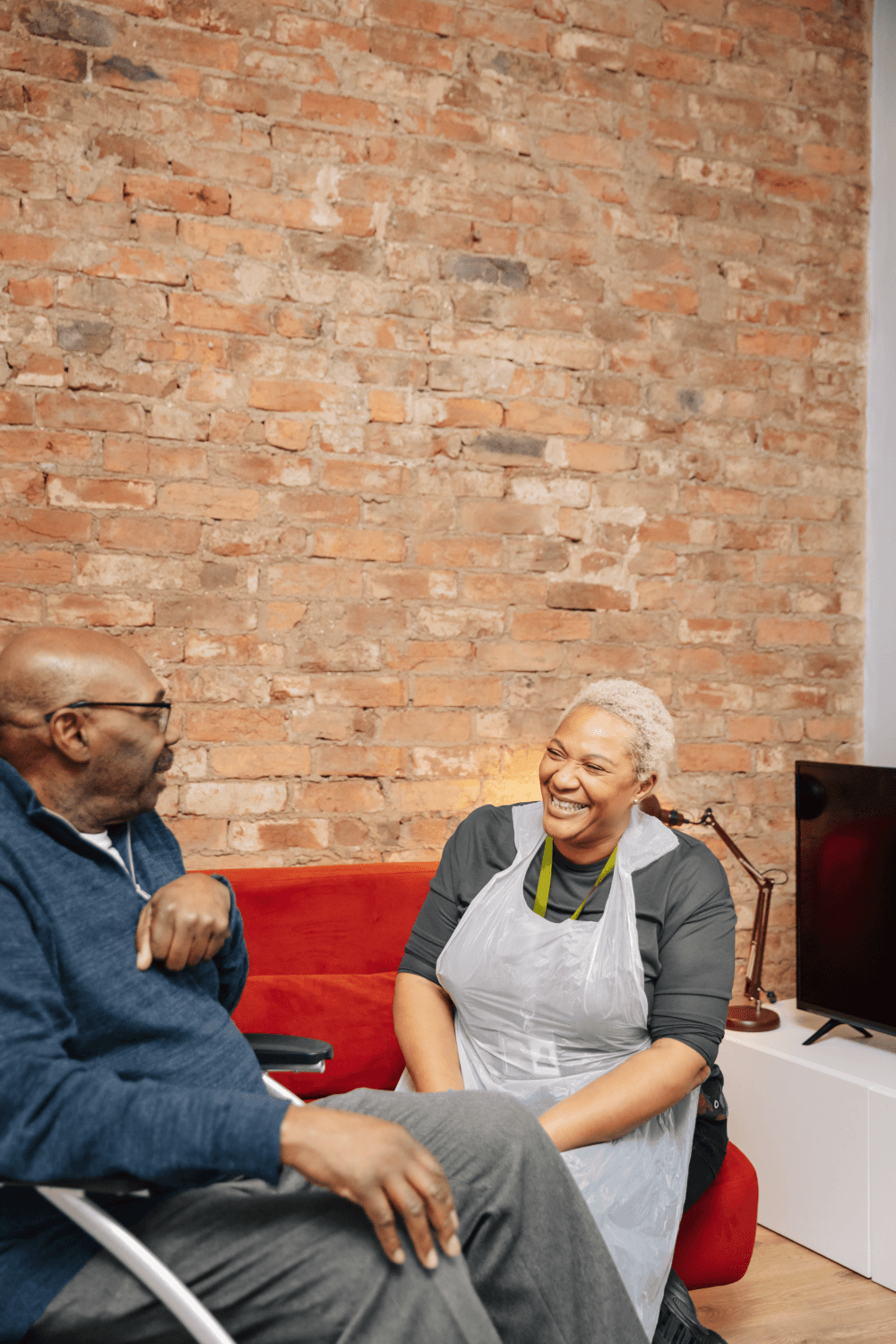
Best Ways to Help Elderly People Stay Hydrated
1. Encourage Small, Frequent Sips
Don’t wait for thirst. Offer drinks at set times, when waking, with meals, before bed, and every couple of hours throughout the day. A water bottle next to a favourite chair or bed can serve as a visual prompt and a practical solution.
2. Make Fluids Appealing
Not everyone enjoys plain water, especially if their taste or smell has changed. Try these alternatives:
- Flavoured waters with lemon, mint, or cucumber
- Herbal teas or decaffeinated brews
- Light fruit juices (low in sugar)
- Milkshakes or smoothies
- Sparkling water
The goal is consistent fluid intake, not necessarily plain water every time.
3. Add Hydrating Foods to the Menu
For those who struggle to drink larger volumes, foods rich in water can help make up the difference:
- Fruits: Watermelon, oranges, grapes, strawberries, peaches
- Vegetables: Cucumber, lettuce, celery, tomatoes
- Other options: Yoghurt, soup, jelly, ice lollies, applesauce
These options are also easier to eat for those with swallowing difficulties or low appetites.
4. Avoid Dehydrating Choices
Some drinks can actually increase fluid loss or imbalance electrolytes. It’s best to limit:
- Caffeinated coffee or tea
- Sugary fizzy drinks
- Alcohol
Replacing these with hydrating options, even occasionally, can make a big difference.
5. Dress Smart for Summer
Older adults may not sweat as efficiently, which puts them at higher risk in warm weather. Encourage light, breathable clothing such as cotton, bamboo, or linen. Avoid synthetic fabrics like polyester and rayon that trap heat.
6. Build Drinking Into the Routine
Turn drinking into a habit by pairing it with daily activities:
- A drink with medication
- Tea at TV time
- Cold water before an afternoon walk
- Drinks served with every carer visit
Visual cues like marked water bottles or reminders on a phone or calendar can also be helpful.
7. Review Medication Side Effects
Many older adults take multiple prescriptions. Common ones that contribute to dehydration include:
- Diuretics
- Antidepressants
- Laxatives
- Antihistamines
Speak to a GP or pharmacist to check whether any medications might be affecting hydration and plan extra fluid intake accordingly.
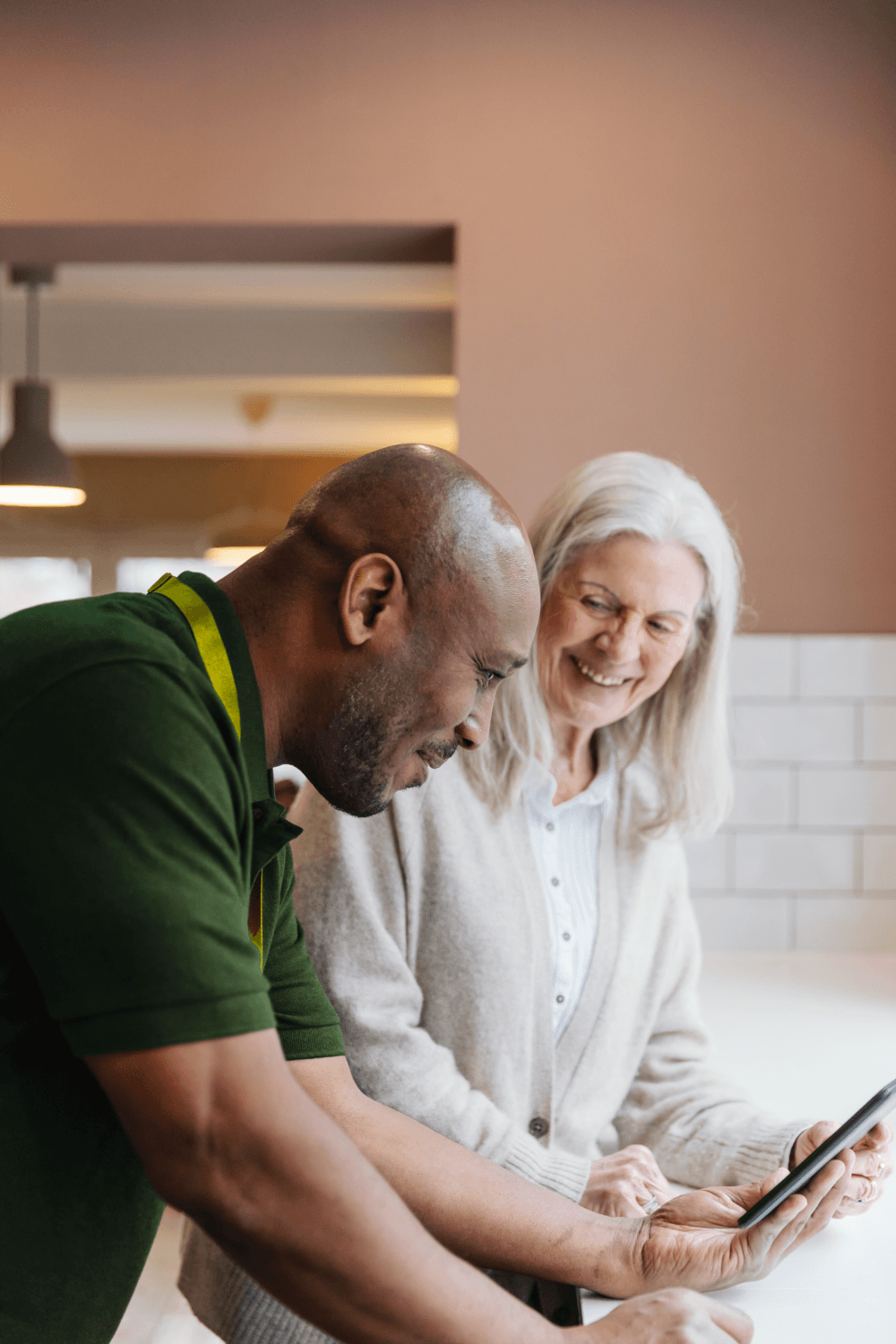
Overcoming Emotional and Practical Barriers
Sometimes the barriers to hydration aren’t physical, they’re emotional or psychological. These are just as important to recognise:
- Fear of accidents or incontinence: Some people avoid drinking to reduce bathroom trips. Incontinence pads, commodes, and accessible toilets can help manage this worry.
- Difficulty swallowing: Thickened fluids, special cups, or different textures can make it safer and more comfortable.
- Memory challenges: Reminders, prompts, or gentle encouragement from carers make a real difference.
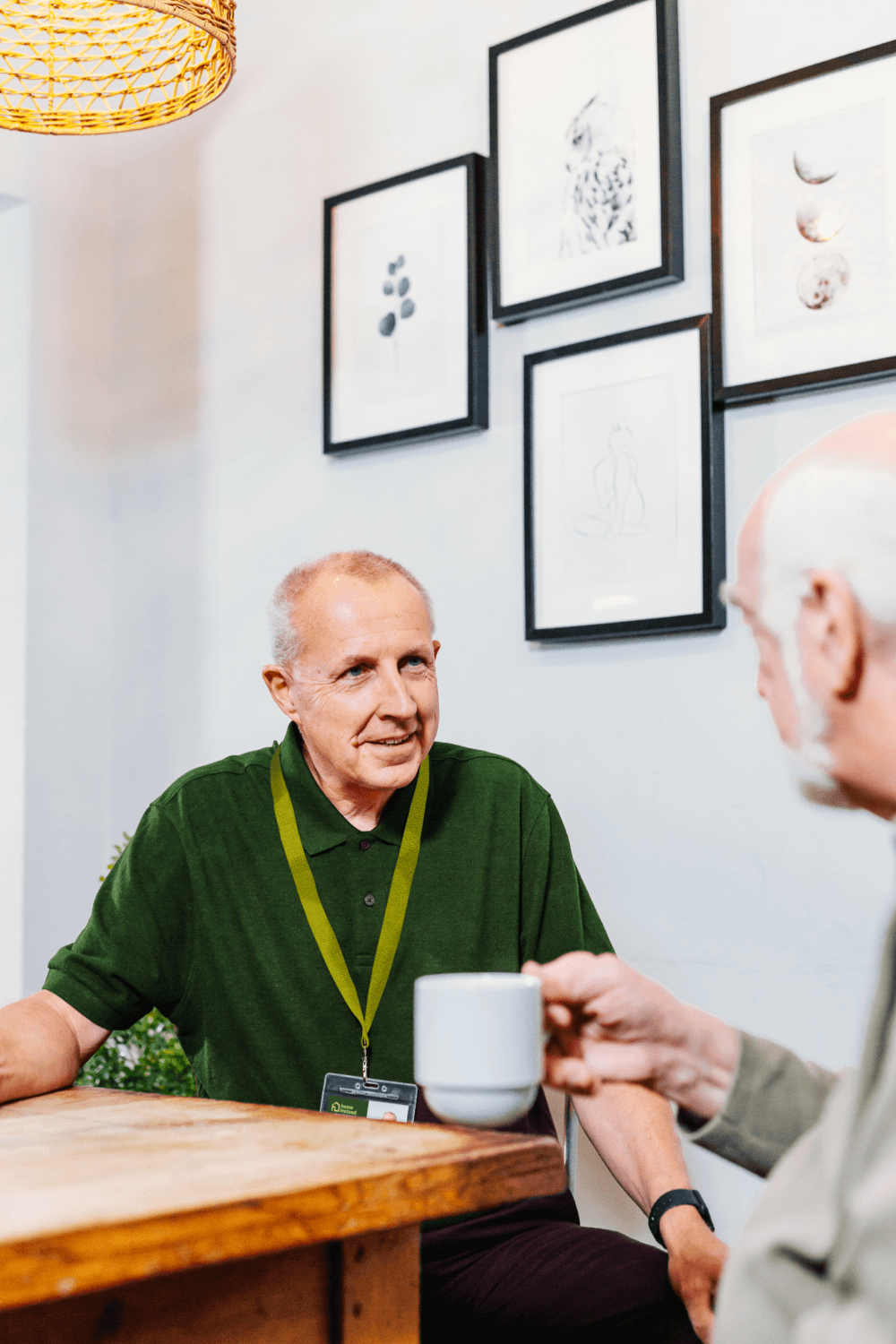
What Can Home Instead Do to Support Hydration?
At Home Instead Taunton & West Somerset, our trained care professionals can help older adults stay hydrated in safe and supportive ways:
- Track daily fluid intake: We monitor how much each client is drinking to spot issues early.
- Prepare meals and snacks: Hydrating foods like fruit, soups, or smoothies are built into meal plans.
- Support during medication: We ensure drinks are offered when medications are taken, especially when diuretics are involved.
- Provide reassurance and dignity: We work sensitively with those who worry about accidents or struggle with swallowing.
- Act on dehydration signs: If symptoms of dehydration appear, we’re ready to take action and contact appropriate health services.
- Early Warning Signs – We use ‘SCORES’ approach and Urine Bottles to spot early signs of deterioration or changes in client’s health conditions including lack of Hydration and Nutrition.
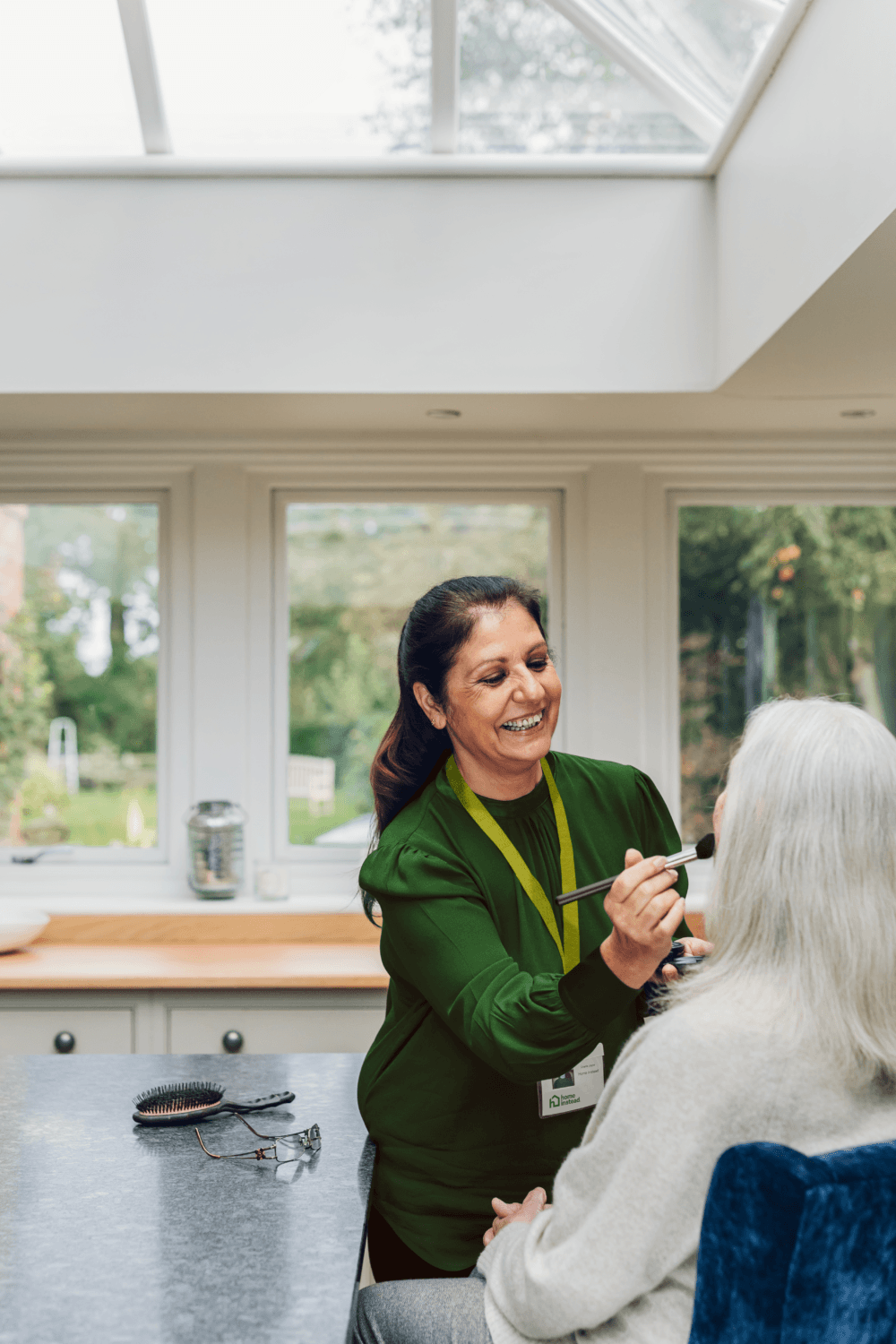
Hydration and Mental Wellbeing
Even small drops in hydration can impact concentration, memory, and emotional stability. Older adults might seem:
- Foggy or forgetful
- Irritable or withdrawn
- Fatigued or lacking energy
These changes can worsen the effects of dementia or depression or even be mistaken for them. Supporting hydration can bring not just better physical health, but improved clarity, calm, and comfort.
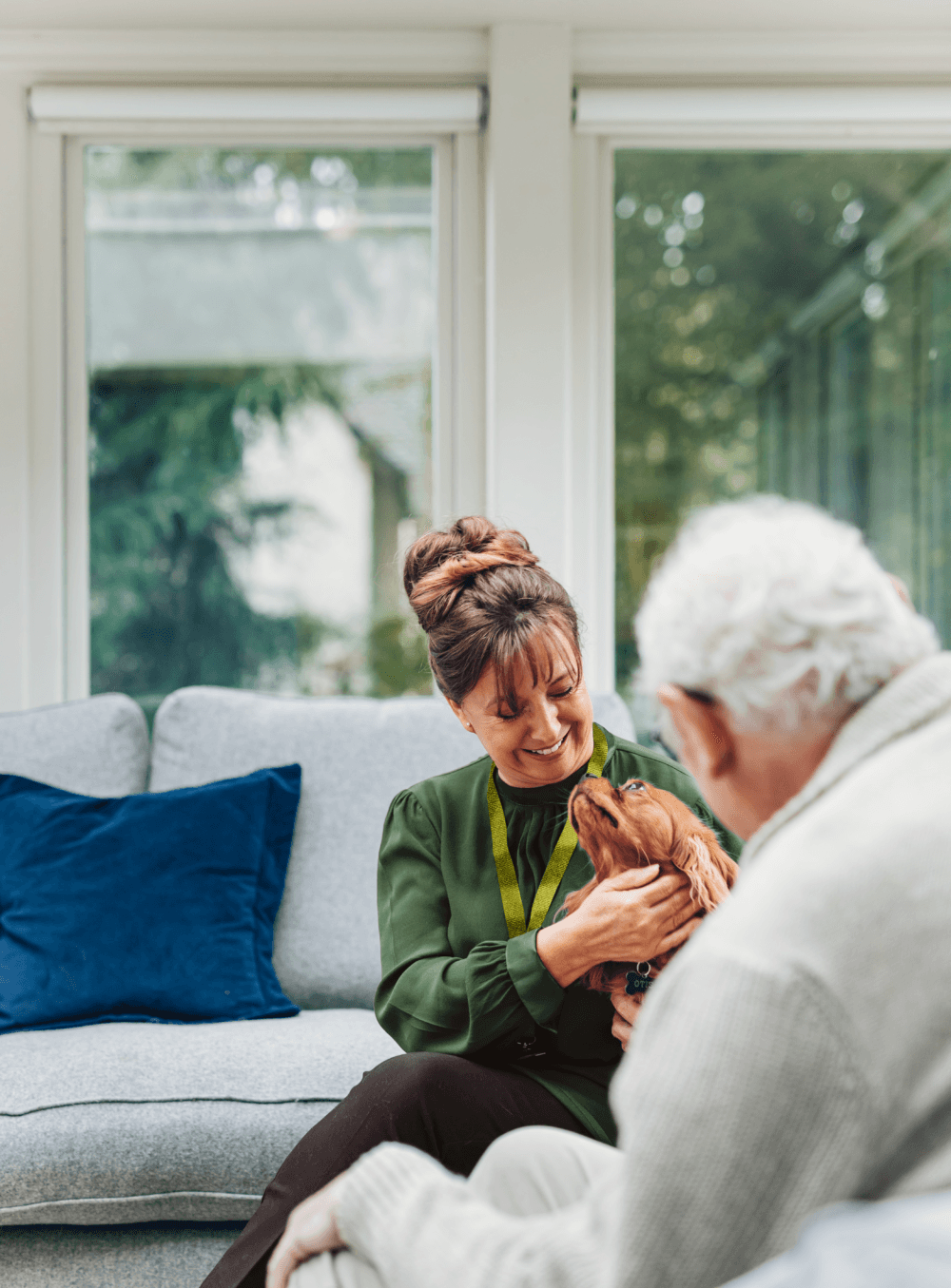
Final Thoughts
Hydration matters more than many of us realise, especially for older adults. But it’s not just about telling someone to “drink more water.” It’s about making drinks enjoyable, building habits, adjusting care routines, and removing emotional and physical barriers.
In Taunton and West Somerset, our community is home to many older people living independently or with support. Whether it’s a loved one ageing at home or someone receiving regular care visits, staying hydrated should be part of the everyday rhythm of life.
At Home Instead, we’re here to help, bringing compassion, experience, and practical care into homes across the region.
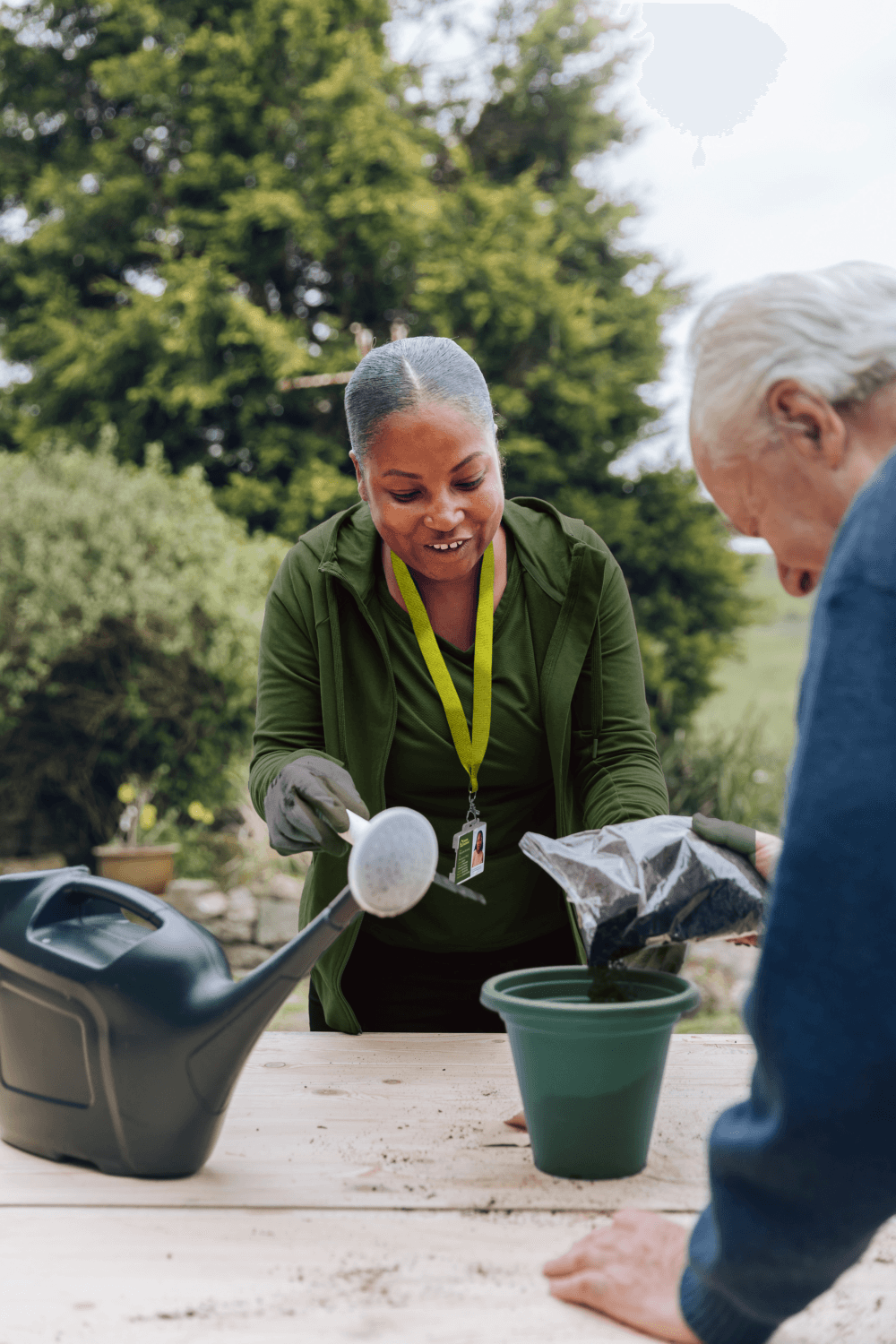
Areas We Serve
Taunton, Bridgwater, Monkton Heathfield, Pitminster and the surrounding areas
TA1 1, TA1 2, TA1 3, TA1 4, TA1 5, TA2 6, TA2 7, TA2 8, TA21 0, TA21 8, TA21 9, TA23 0, TA24 5, TA24 6, TA3 5, TA3 6, TA3 7, TA4 1, TA4 2, TA4 3, TA4 4
Comeytrowe Centre, Home Instead The, Pitts Cl, Taunton TA1 4TY, UK